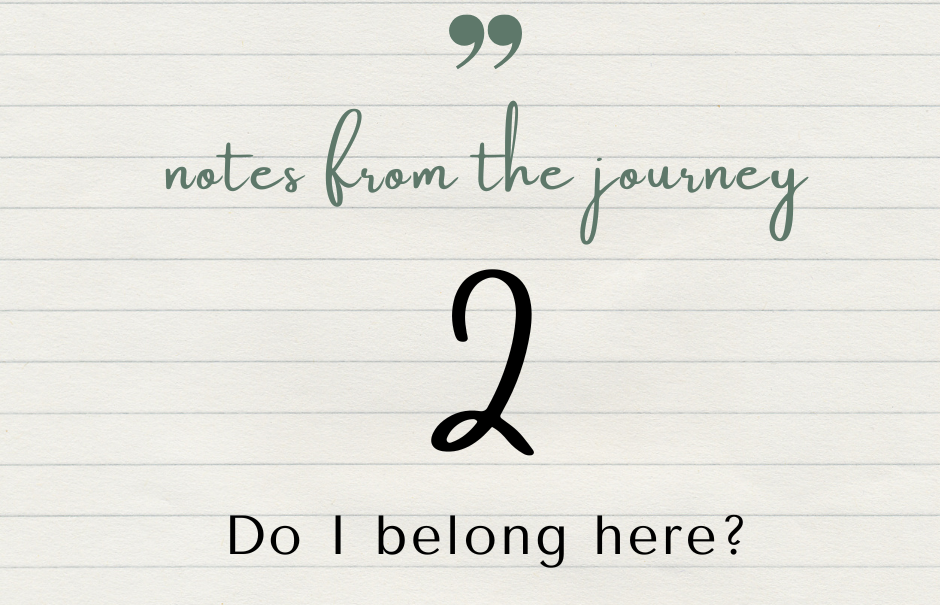Power Isn’t Given - It’s Recognized: A Reflection on Sponsorship
- Kara Sawarynski
- Jul 31, 2025
- 4 min read
“The most common way people give up their power is by thinking they don’t have any.”- Alice Walker
I recently came across this quote on a popular social media site. I promptly screenshotted it, and added it to my folder of “words that inspire me”.
(Side note - please tell me I not the only one with an ever-growing folder of inspiring quotes that sometimes go forgotten…)
Over the next few days, I realized I kept thinking about it. Eventually, I made a connection to another topic I care deeply about: leadership in higher education.
As someone who has spent years mentoring faculty, coaching students, leading institutional initiatives, and showing up in spaces where decisions are made, I’ve come to understand that leadership often doesn’t begin with a title. Instead, it begins with visibility. And sometimes, the hardest person to see clearly is yourself.
I’ve mentored many emerging leaders, and I’ve benefited from meaningful mentorship myself. But I’ve learned that mentorship is not the same as sponsorship, and that the distinction matters.
In a recent chapter I co-authored on leadership in medical education (more to come on that forthcoming book!), we emphasized that while mentorship is valuable, true career acceleration often depends on sponsorship - the act of using one’s influence to advocate for someone else’s advancement, even (especially!) at tables where they may not otherwise have a seat.
Sponsorship is often misunderstood. Some equate it with favoritism or privilege. But real sponsorship isn’t about handing someone an opportunity they haven’t earned. That’s unchecked privilege.
True sponsorship is about speaking into the power of someone’s earned qualifications, especially when those qualifications don’t fit a traditional mold or aren’t immediately visible to others. It’s a strategic act of leadership: using your influence to ensure that talent doesn’t go unnoticed just because it doesn’t look familiar.
Unfortunately, access to sponsorship in academia can be unequal, especially for women and underrepresented faculty, who are often overlooked due to bias, network homogeneity, and/or service-heavy roles that lack visibility. Women, in particular, often face a higher bar to being deemed “sponsorable,” and may hesitate to advocate for themselves due to fears of being perceived as self-promoting. Understanding this dynamic, and actively building relationships that support visibility, is essential for leadership development.
As a leader, I’ve found that self-sponsorship is often an important component of this discussion. This is especially true in environments where contributions, like service, mentoring, or education/training work, can be devalued or rendered invisible. While the term "self-sponsorship" isn't widely used in academic literature, it's become an increasingly important concept in leadership. It refers to the intentional act of naming one's own value and goals, especially in the absence of formal advocacy.
Self-sponsorship means naming your goals out loud. It means saying, “I’m ready for that role,” or “I’d like to be considered for this opportunity,” even when no one asks. It doesn’t mean you’re waiting to be “picked.” It means you understand your worth, and invite others to recognize it too. Saying your goals out loud is more than just a step toward visibility, it’s often the catalytic moment in recognizing your own value and taking ownership of your journey.
The hard truth? In higher education, many faculty, especially women, wait too long to be sponsored (either by a colleague, or more importantly, themself). We tell ourselves to just keep producing, just keep saying yes, just keep being “good”. But sponsorship doesn’t come only to the busy. It comes to those who are visible, connected, and unapologetically vocal about their goals.
As a leader, I’ve seen how transformative it can be to invite sponsees to name their aspirations aloud whether in a quiet conversation, a personal journal, or across a coffee table. Even if it starts as a conversation with oneself, having the audacity to articulate those goals can be an ignition point in developing as a leader in a manner that is authentic to you.
That moment of clarity where a trusted colleague can encourage one to be brave enough to let their heart speak things such as “I want to lead" or "I want to be considered" isn’t just powerful. It’s foundational in developing the next generation of change-makers.
While self-sponsorship matters, it doesn’t let institutions off the hook. Higher education must do more to create pathways for diverse leadership including:
Training sponsors to recognize talent beyond their own reflection
Valuing service and education work in promotion processes
Ensuring leadership opportunities are more than informal nods in back hallways
As leaders, we can ensure we are not falling into the trap of favoritism, but instead leverage sponsorship as a deliberate, equitable practice. That means:
Sponsoring those whose leadership doesn’t mirror our own
Recognizing and naming potential where others see “not ready” - this is especially important to communicate directly to the person you hope to sponsor!
Encouraging others to be audacious enough to self-sponsor themselves (even if this means starting small in a journal or a low-stakes conversation)
Advocating for visibility of sponsees in rooms where someone’s impact isn’t yet known
Sponsorship, when done well, is how we create more just, inclusive academic systems. It’s how we shift culture, not just strategy.
I no longer wait for someone to tap me on the shoulder.
I tap my own.
And I tap others’, too.
I hope that my actions are a spark to encourage others to do the same.
Because I know that the power to lead, to uplift, and to transform academic culture doesn’t come from a title.
It comes from recognizing your own worth, and using that recognition to open doors for others.
Just as Alice Walker said: The most common way people give up their power is by thinking they don’t have any. I refuse to give mine away.


Comments